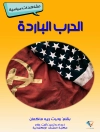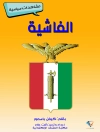The contributors to this collection explore the multidimensional transformation of independent Ukraine and deal with her politics, society, private sector, identity, arts, religions, media, and democracy. Each chapter reflects the up-to-date research in its sub-discipline, is styled for use in seminars, and includes a bibliography as well as a recommended reading list. These studies illustrate the deep changes, yet, at the same time, staggering continuity in Ukraine’s post-Soviet development as well as various counter-reactions to it. All nine chapters are jointly written by two co-authors, one Ukrainian and one Western, who respond here to recent needs in international higher education.
The volume’s contributors include, apart from the editors: Margarita M. Balmaceda (Seton Hall University), Oksana Barshynova (Ukrainian National Arts Museum), Tymofii Brik (Kyiv School of Economics), José Casanova (Georgetown University), Diana Dutsyk (Kyiv-Mohyla Academy), Marta Dyczok (University of Western Ontario), Hennadii Korzhov (Kyiv Polytechnic Institute), Serhiy Kudelia (Baylor University), Pavlo Kutuev (Kyiv Polytechnic Institute), Olena Martynyuk (Columbia University), Oksana Mikheieva (Ukrainian Catholic University), Tymofii Mylovanov (University of Pittsburgh), Andrian Prokip (Ukrainian Institute for the Future), Oxana Shevel (Tufts University), Ilona Sologoub (Kyiv School of Economics), Maksym Yenin (Kyiv Polytechnic Institute), and Yuliya Yurchenko (University of Greenwich).
Über den Autor
Georgii Kasianov is Department Head at the Institute of History of Ukraine at the Ukrainian National Academy of Sciences in Kyiv.
Mykhailo Minakov is Senior Advisor at The Kennan Institute of the Woodrow Wilson International Center for Scholars in Washington, DC.
Matthew Rojansky is Director of The Kennan Institute of the Woodrow Wilson International Center for Scholars in Washington, DC.












